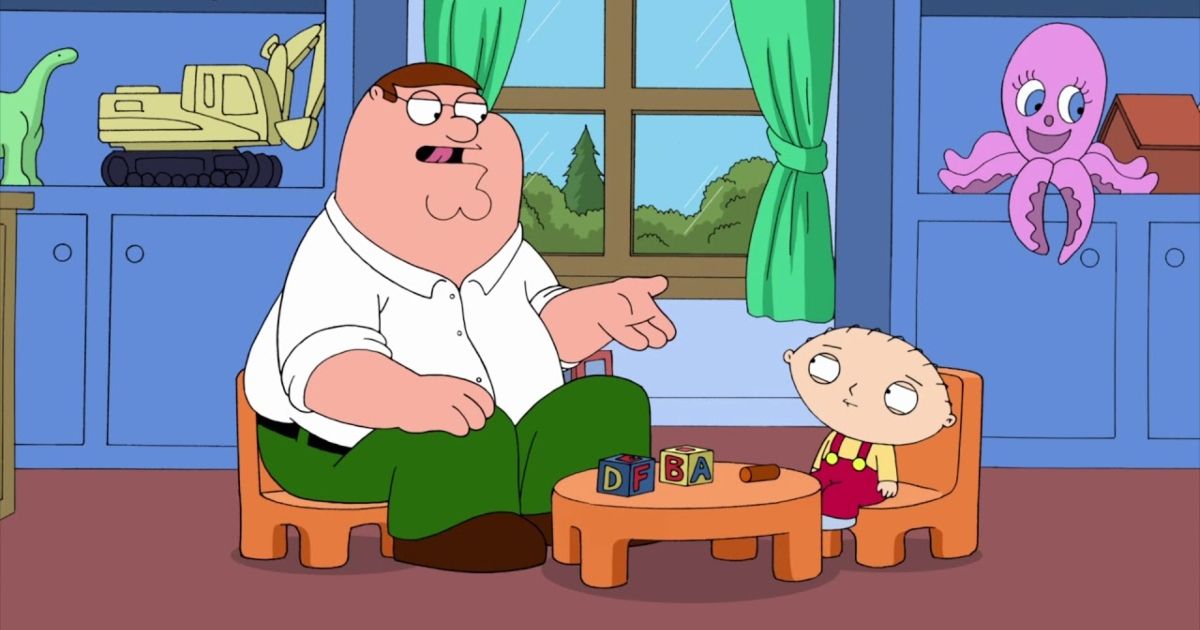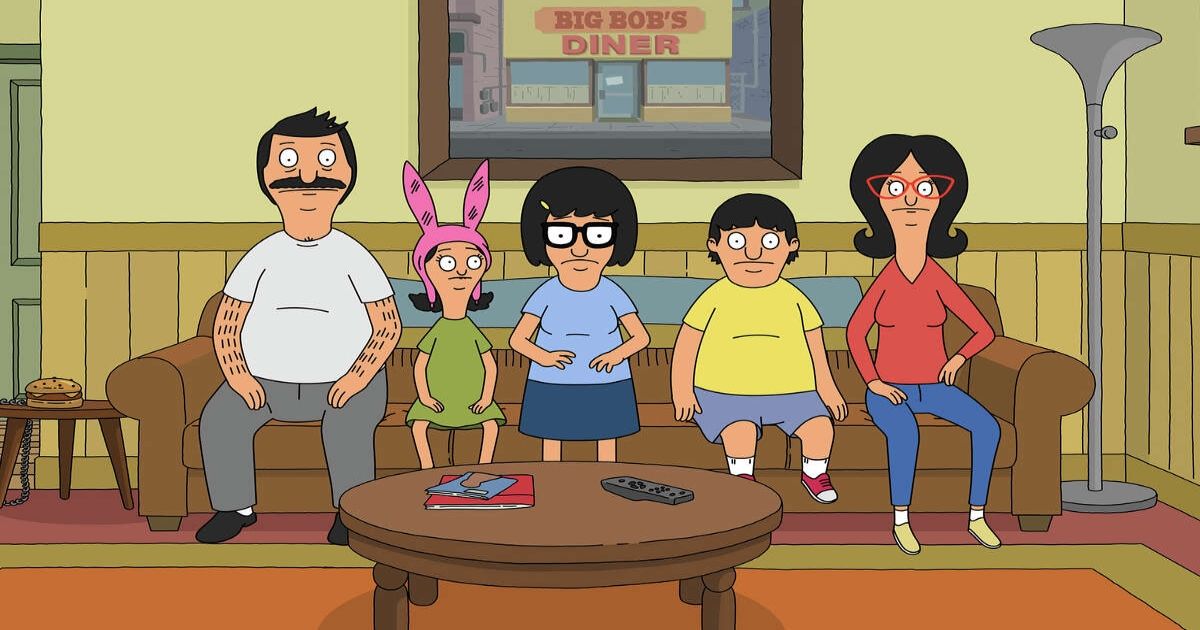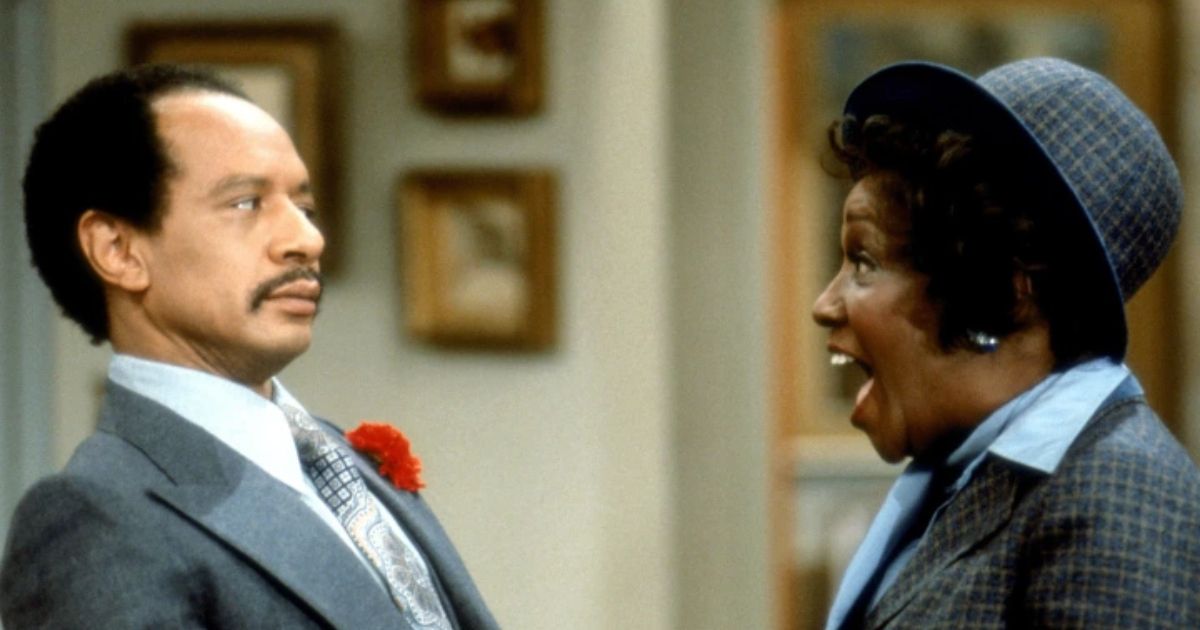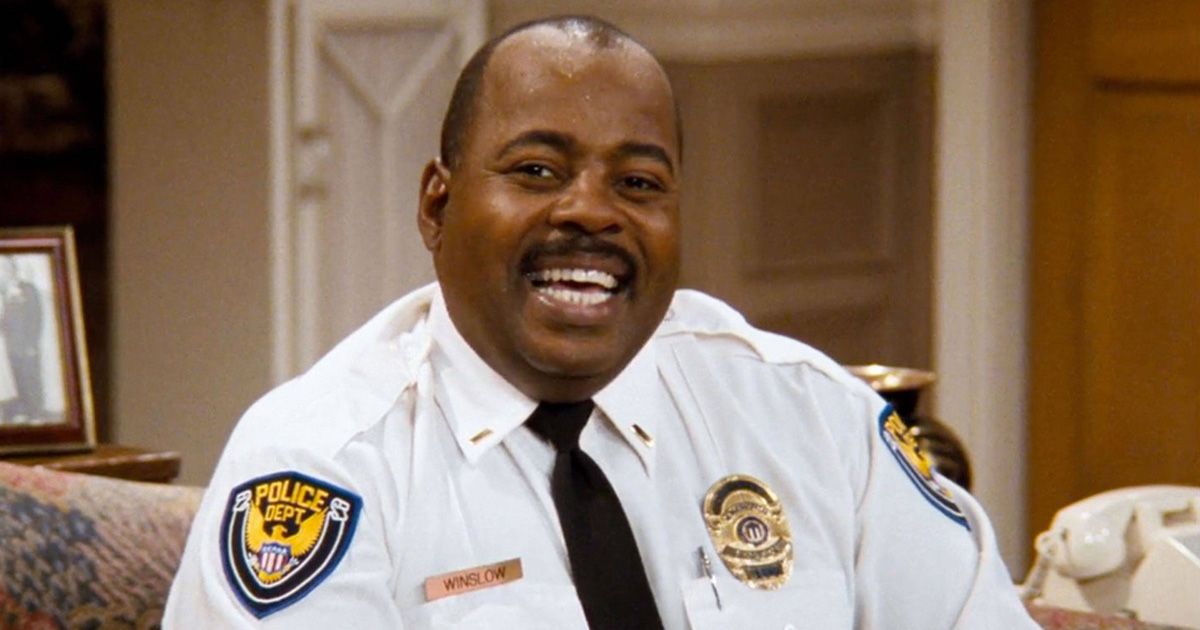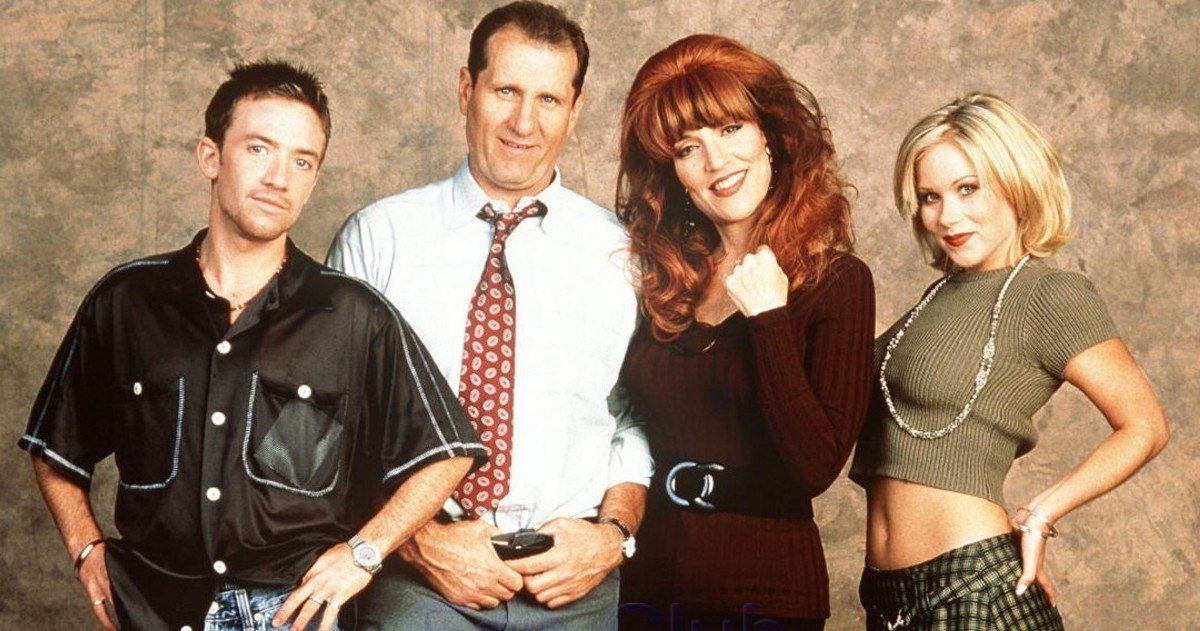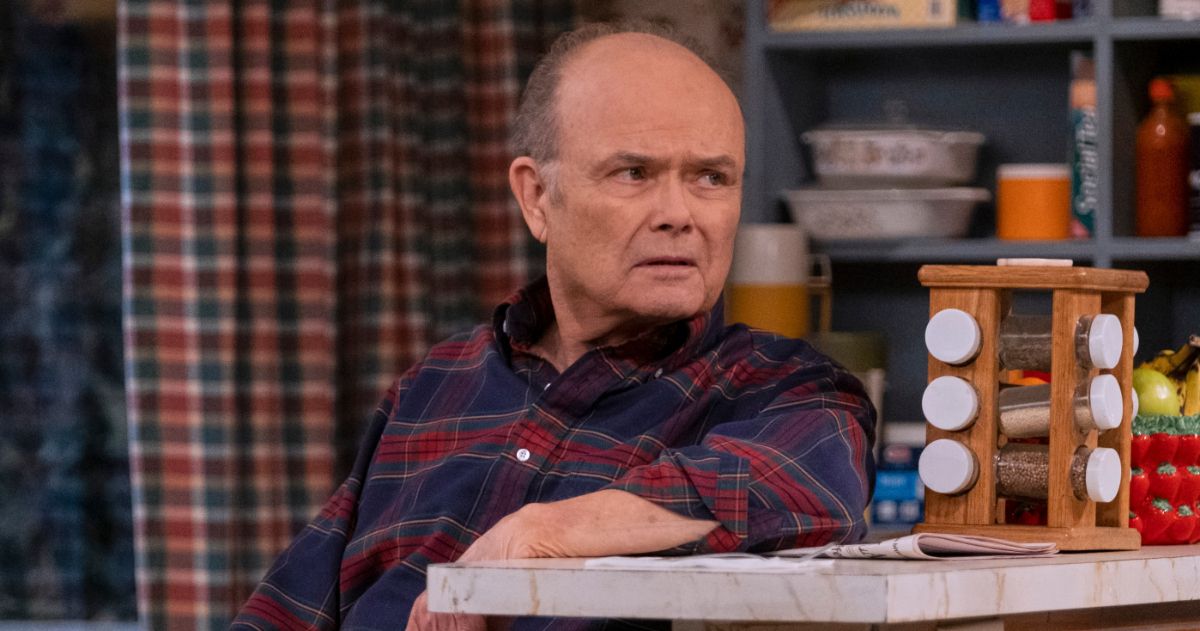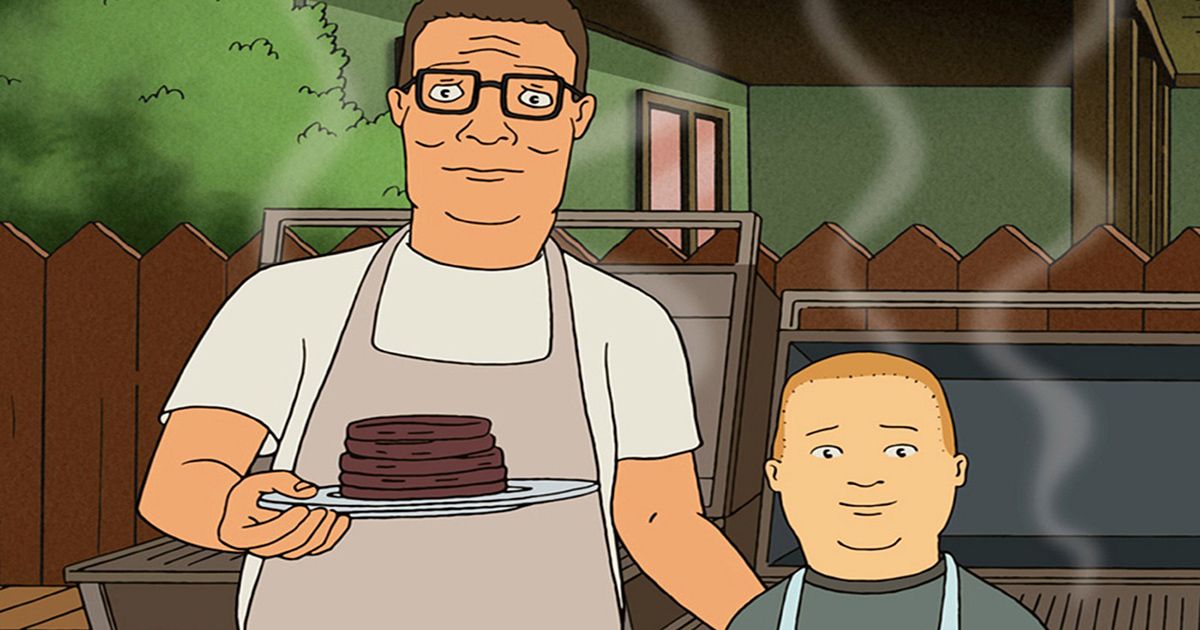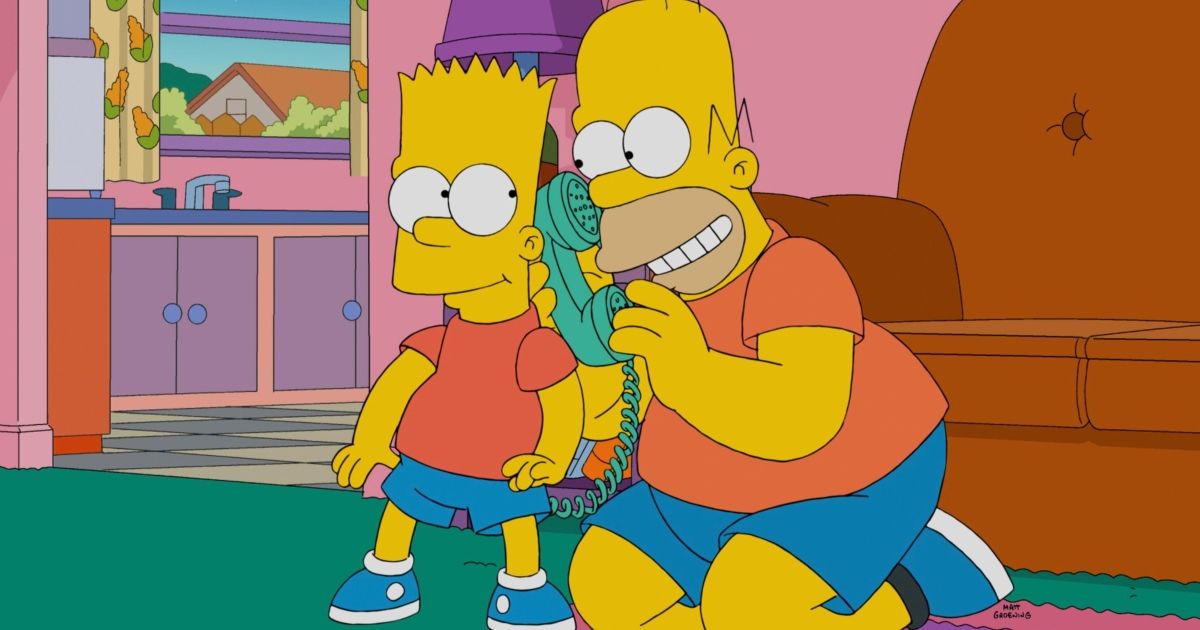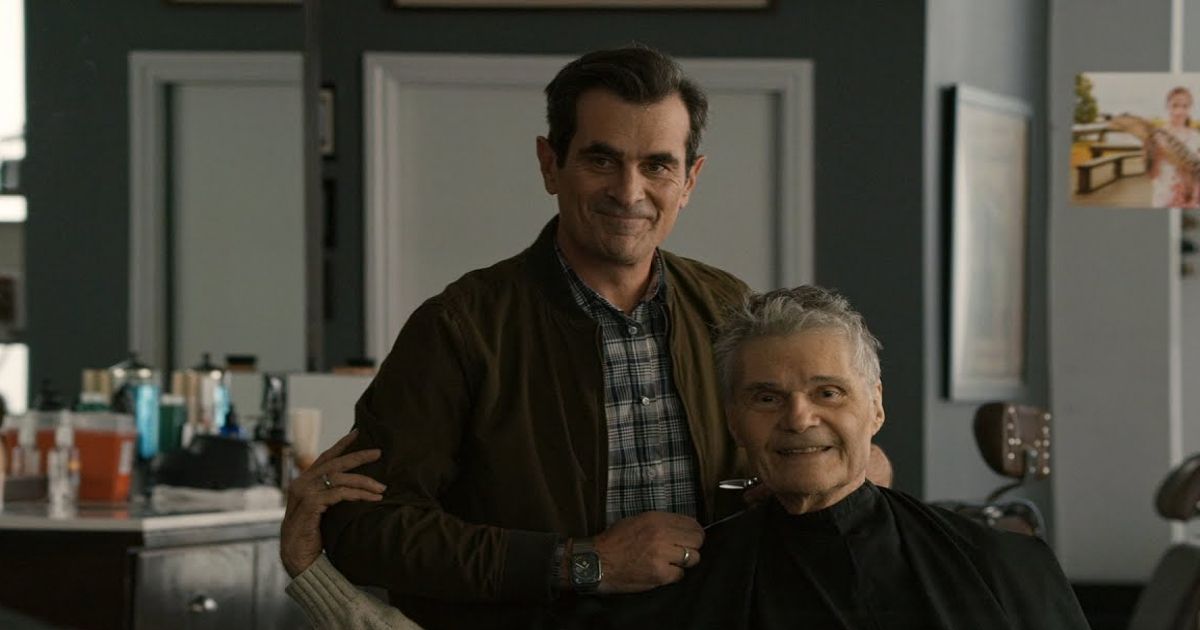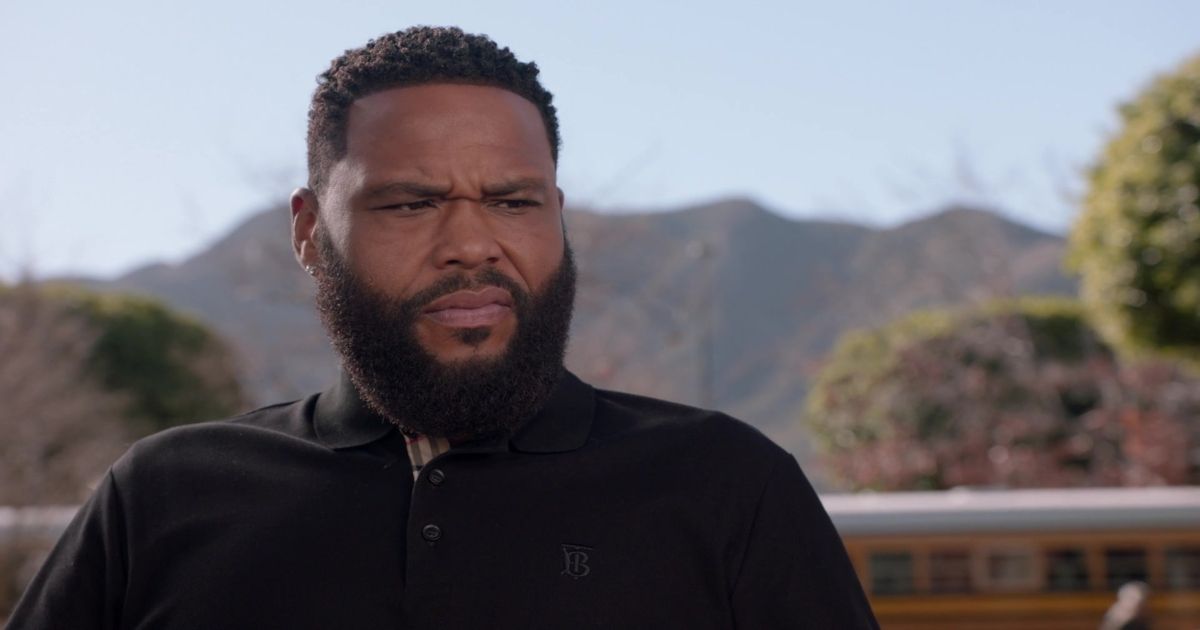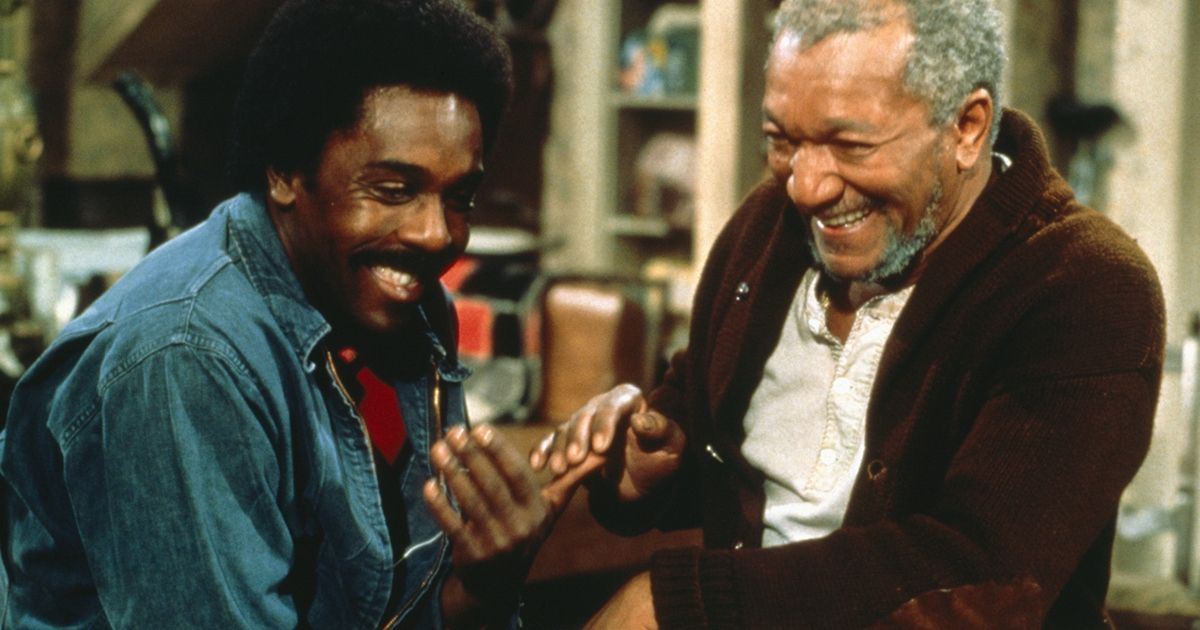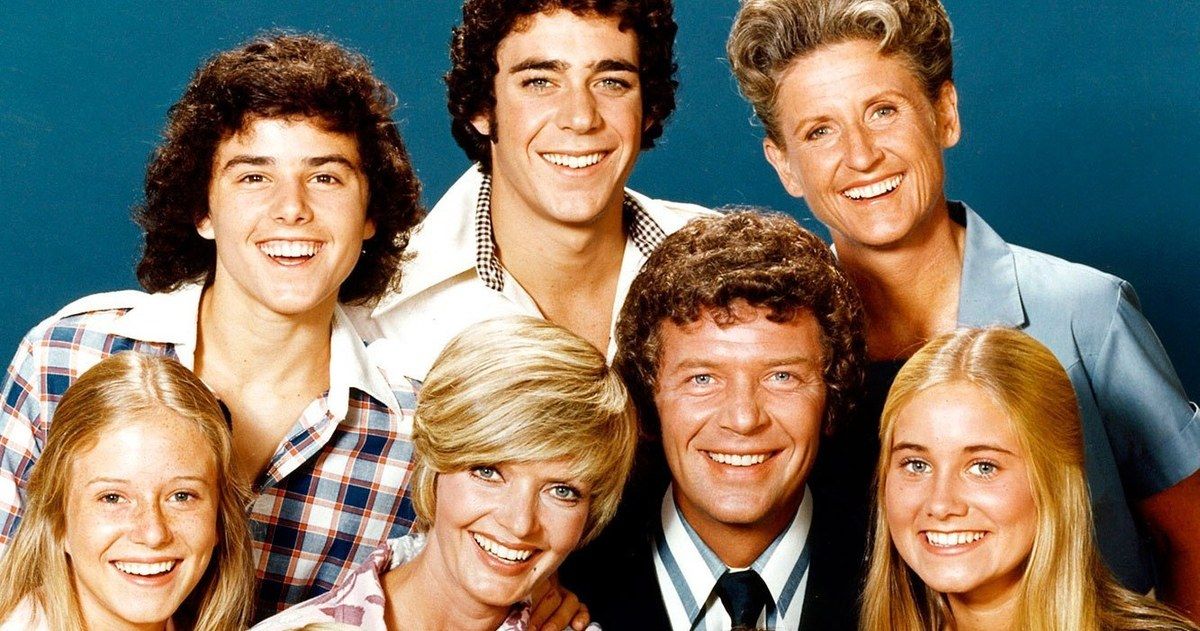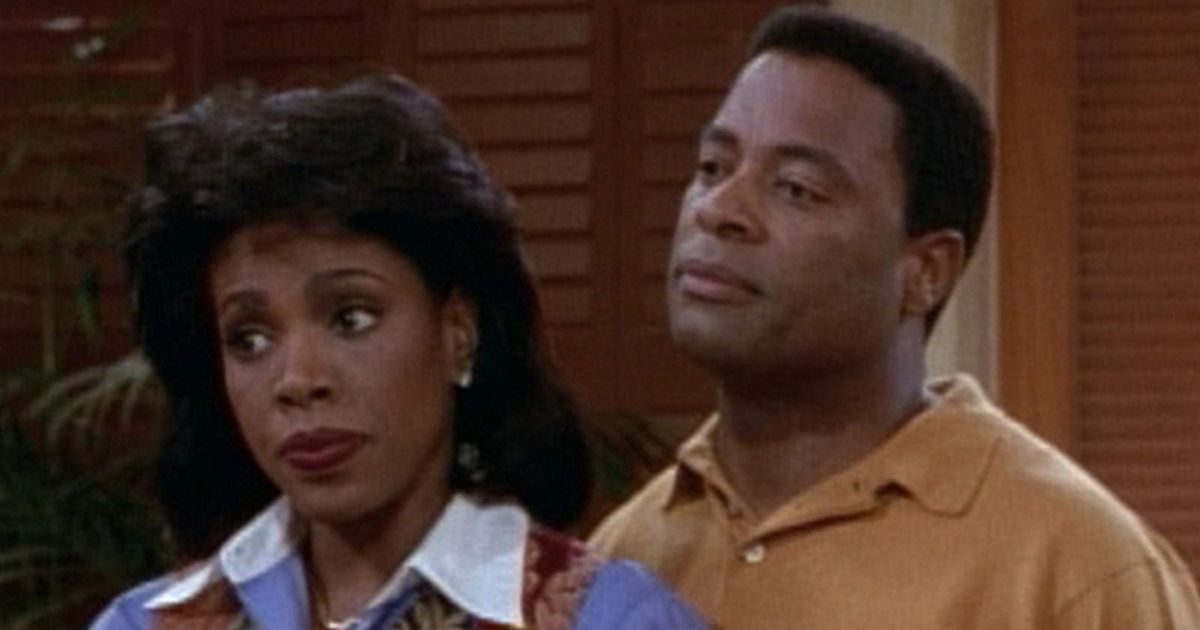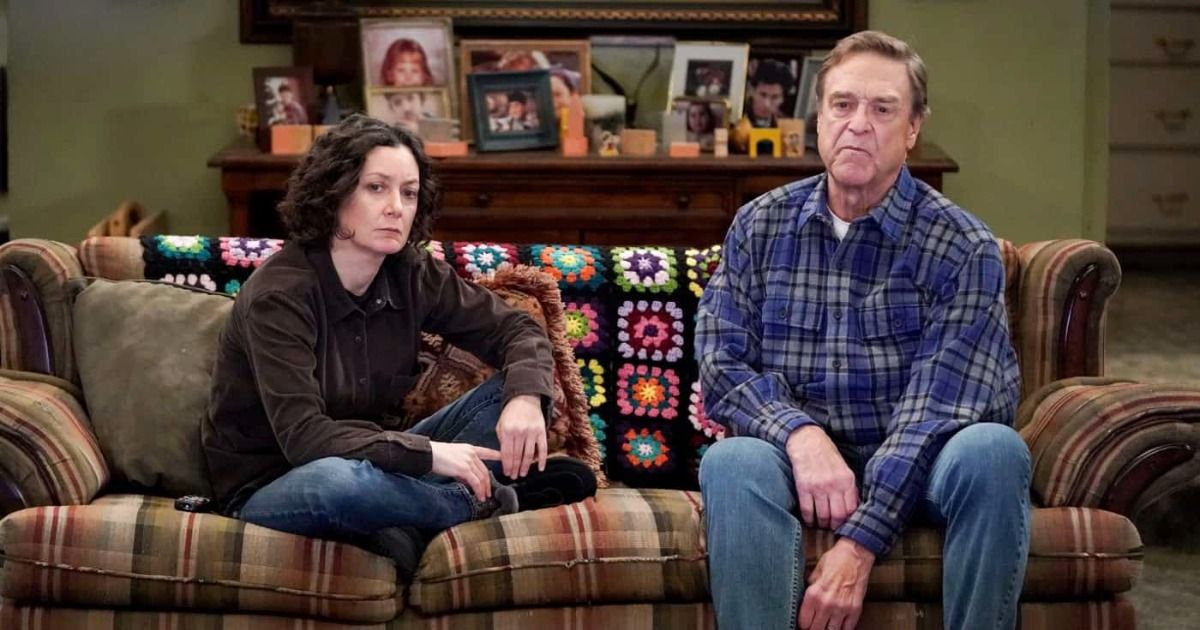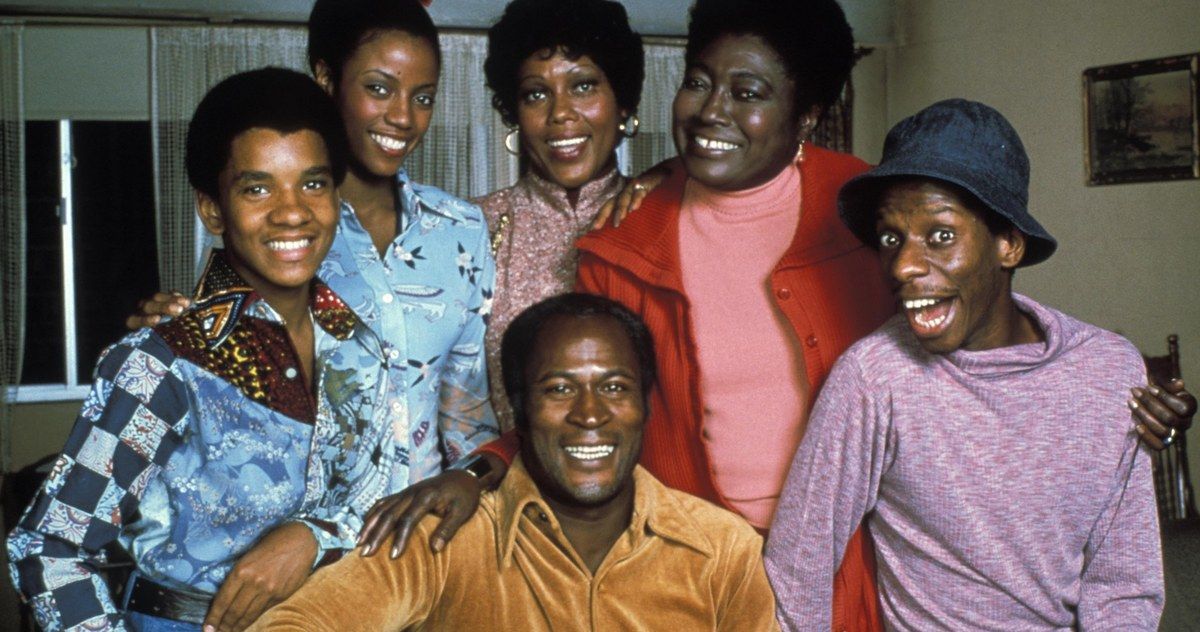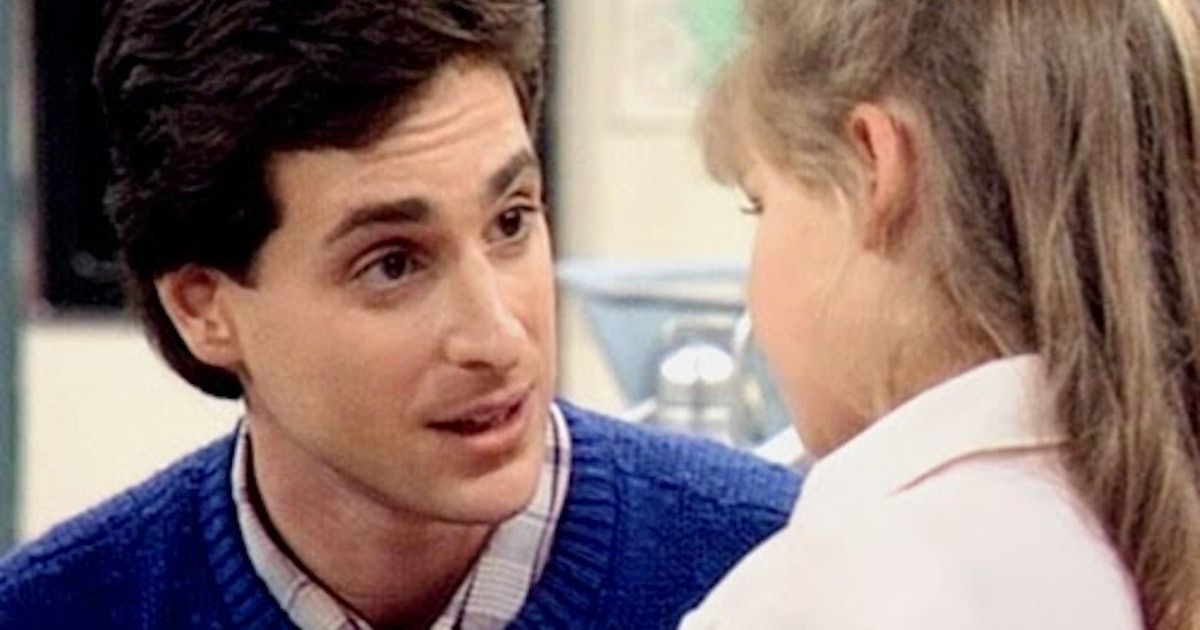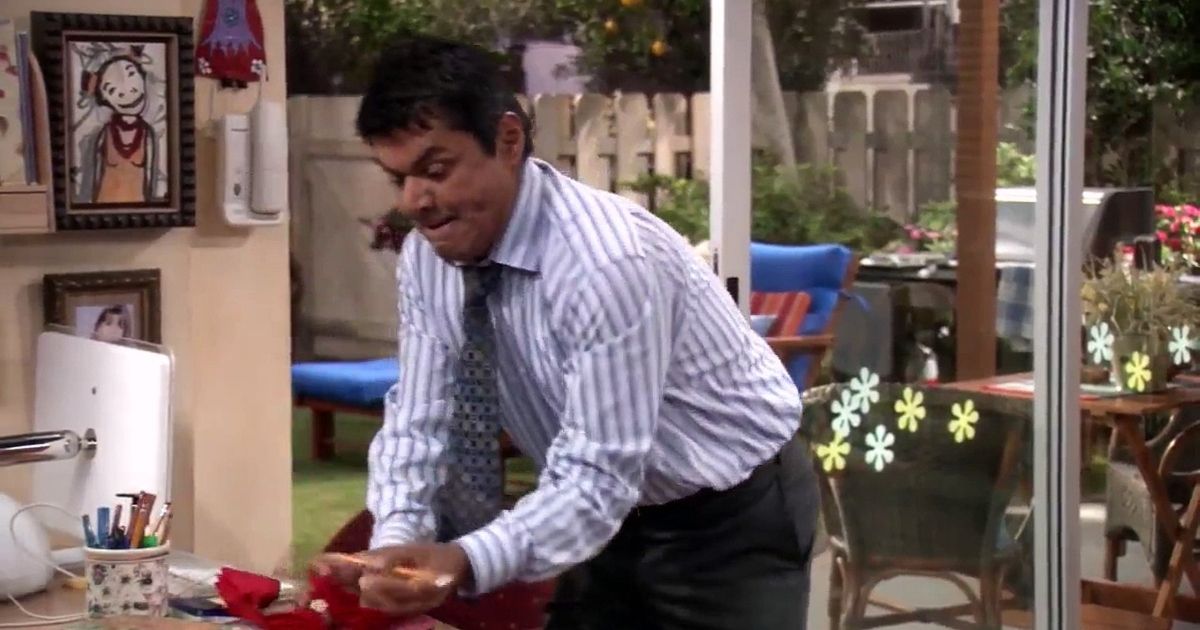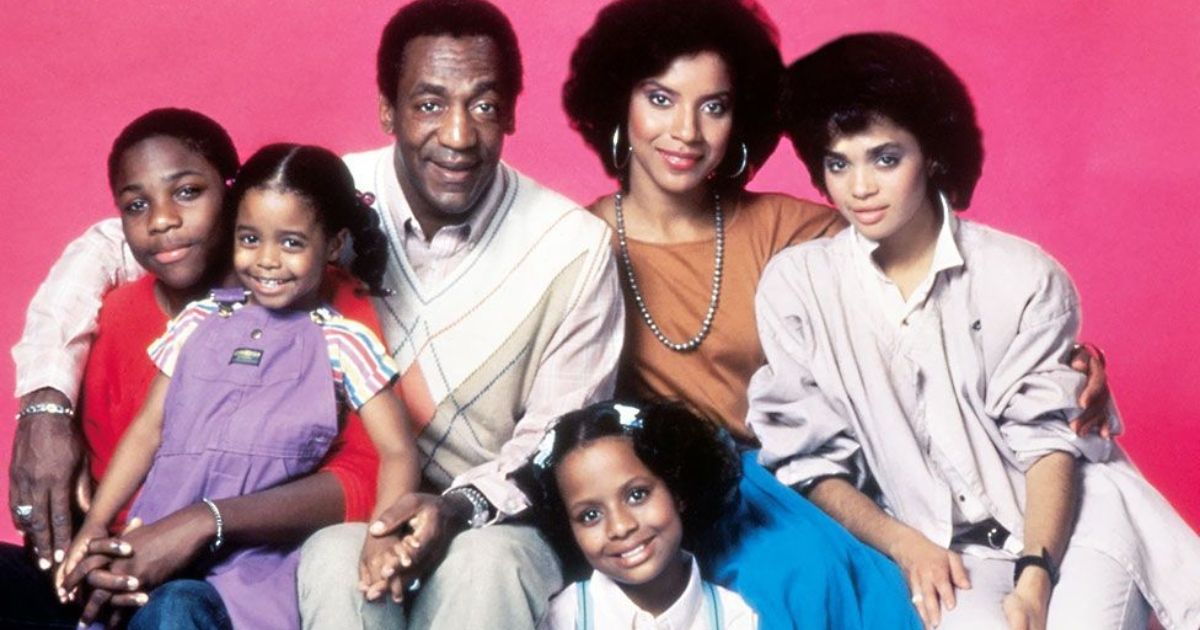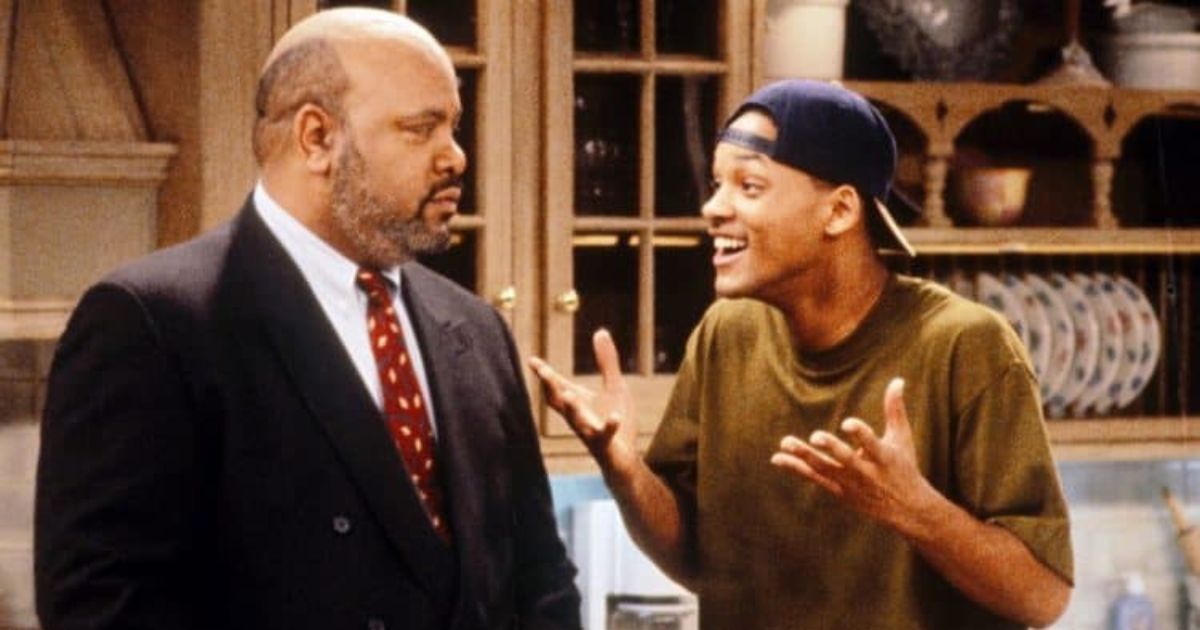Father’s Day is notable because fathers worldwide receive acknowledgment for their hard work, sacrifices, and commitments. Even though relationships become complicated with time, we hope our readers have at least one fond memory of their father or someone who fulfilled that essential role in their lives. While not as popular as Mother’s Day, we must take the time to thank the men who provide for their families and ensure their children grow into productive, functioning members of society.
Like our list of beloved TV Mothers for Mother’s Day, this list will honor Father’s Day by acknowledging some of our favorite onscreen patriarchs. We’ll base our choices on each TV dad’s aptitude for nurturing their children, how effectively they run their household, and their respective actor’s portrayals. With Father’s Day right around the corner, we invite you to get comfortable and enjoy our list of the most beloved TV fathers.
20 Peter Griffin (Family Guy)
Debuting in 1999, FOX’s Family Guy is one of the network’s most popular productions, as it spawned a series of spin-off shows and is still going strong twenty-four years later. Although compared to the pop culture sensation The Simpsons around the time of its debut, Family Guy has gone on to establish its legacy, and both shows have poked fun at each other over the years. The cutaways, crass humor, and wacky cast of characters are just a few things that have turned Family Guy into the award-winning powerhouse that we know it as today.
Peter Griffin’s dim-witted personality is probably his defining characteristic, but he is also a genuinely thoughtful and loving family man. Even though he has a complex relationship with his children Meg, Chris, and Stewie, Peter still works hard for the family and collaborates with Lois to ensure everyone has food and a roof over their heads.
19 Robert “Bob” Belcher Jr. (Bob’s Burgers)
FOX’s Bob’s Burgers is a beloved animated sitcom that debuted in January 2011. Known for its unique art style and long-running status, Bob’s Burgers recently received a movie titled The Bob’s Burgers Movie and was generally well-received by critics and audiences.
Like many of the father’s on our list, Bob is a simple man with relatively simple goals and aspirations. Bob owns a restaurant named after himself and wants his children to have a better life than the one he lived. Even though Bob is pessimistic and constantly behind on rent, he never gives up on his goals or family.
18 George Jefferson (The Jeffersons)
CBS’s The Jeffersons aired from 1975-185 and was a successful spin-off of the beloved sitcom All in the Family, which ran from 1971-1979. Known for its iconic theme song ‘Movin’ On Up,’ performed by the late, great Ja’net DuBois, The Jeffersons followed the Jefferson family and their neighbors in their high-rise Manhattan apartment complex. The Jeffersons were renowned for covering many important topics during its time, particularly issues stemming from race in America.
Although George was a successful businessman owning a chain of seven dry cleaning businesses, he was a perpetual schemer who thought he was smarter than everyone around him. Despite his unsavory business tactics, prejudices towards interracial couples, and chauvinist attitude, George cared about his family and especially looked out for his children. While the depictions of African American fathers on the small screen have evolved through the years, George Jefferson was among the first to resonate with Black audiences due to his socioeconomic status, loyalty to his wife Weezy, and the wisdom he shared with his children.
17 Carl Winslow (Family Matters)
ABC’s Family Matters debuted on September 1989 and depicted the daily lives of the Winslow family, a middle-class African American family living in Chicago, Illinois. Although we’d forgive you for thinking the comedic nerd Steve Urkel was the protagonist, it was Chicago Police Department officer Carl Winslow who was the family’s breadwinner.
A proud man, Carl took his role as the self-proclaimed Big Kahuna very seriously and ensured everyone living under his roof did the same. Although a short-tempered man, especially with the consistently annoying Urkel, Carl always does what’s necessary to provide for them. He sets an example of the kind of man his son Eddie should be and the type of man his daughters Laura and Judy should aspire to date.
16 Al Bundy (Married… with Children)
FOX’s Married… with Children debuted in April 1987 and ran successfully until June 1997. The show received praise for its cast, humor, and depiction of a working-class American family. Although not as polished as other families on our list, Married… with Children was such a success with audiences as it perfectly captured the financial struggles prevalent for most families in the late 1980s to the mid-90s. Instead of dramatizing the hardships, Married… with Children approached them with comedy, thus offering audiences levity about stressful situations in their homes.
Beloved actor Ed O’Neill plays Al Bundy, the misanthropic women’s shoe salesman and patriarch of the Bundy family. Al generally complains about his station in life, his marriage, and his children’s lack of ambition and success but adds a hint of humor to his complaints.
Despite his cynical outlook on life, Al is shown on multiple occasions standing up for his family whenever they’re disrespected or otherwise in times of crisis. O’Neill’s portrayal of Bundy would be one of many reasons he would later secure another patriarchal role in ABC’s wildly successful Modern Family as Jay Pritchett.
15 Red Forman (That ’70s Show)
FOX’s That ’70s Show was one of the most successful American sitcoms of the 1990s. Set in the fictional town of Point Place, Wisconsin, That ’70s Show’s opening theme and characters were among some of the things that contributed to the show’s success. The show’s teenage characters were the most popular of the cast, but Kitty and Red Forman, the older couple supervising the teens, were also well-received.
Red Forman was known for his strict demeanor and ever-present newspaper in hand. The father of Eric and Laurie, Red was known to show favoritism toward Laurie and often berated Eric, calling him things like “soft” and “dumb-ass.” Moreover, he tended to favor Hyde as he felt the young man was a better example of what a man circa 1970s suburbia was like.
Despite being harsh on Eric, Red admits to Kitty that he loves his son and only treats him harshly to help keep him on a straight path. As both men grow older, Red’s attitude toward Eric softens as he becomes proud of the young man’s growth and success, thus, in a strange way, somewhat justifying his tough-love approach to parenting.
14 Hank Hill (King of the Hill)
Beavis and Butt-Head creator Mike Judge created FOX’s King of the Hill in 1997 to rave reviews and ratings. Hill is set in the fictional town of Arlen, Texas, and follows the daily lives of its residents, particularly the Hills. The proud propane and propane accessories salesman, Hank is one of Arlen’s most honest and hardest-working citizens, and he gets along well with just about anyone he meets. Despite his accomplished professional life, Hank struggles with matters revolving around his family life. While Hank doesn’t always understand or agree with his young son Bobby’s interests, he generally supports Bobby and reassures him whenever he’s feeling depressed.
One of Hank’s hang-ups is his inability to show affection to those he cares about, as he thinks it is a sign of weakness. However, Peggy convinces him to talk to Bobby in the pilot when their son says he feels like a disappointment to the family. Despite himself, Hank genuinely assures Bobby that he’s one of the things he’s most proud of and loves him, and the two begin to bond shortly afterward. Hank is supposed to represent the idea of the all American family man, thus why he tends to struggle with technology and expressing himself. However, we see Hank rise above his issues multiple times to support his friends and family.
13 Homer Simpson (The Simpsons)
FOX’s The Simpsons is the longest-running animated sitcom, as it has been on our television screens since 1989 and doesn’t appear to be slowing down anytime soon. The Simpsons’ popularity mainly comes from its large cast and guest celebrity appearances. Of the show’s many characters inhabiting the neighborhood of Springfield, the Simpsons family is undoubtedly the most famous of the bunch. Marge’s gravelly voice and iconic tower of blue hair, Bart’s mischievous antics, Lisa’s know-it-all personality, and Maggie’s wisdom far beyond her years are just a few characteristics that make the family unique.
However, the patriarch, Homer Simpson, is the most bizarre member of the bunch. The dim-witted father of three is famous for his love of donuts, frequenting Moe’s Tavern, and his signature catchphrase, “D’oh!” While Homer is arguably the most recognizable entrant on our list, he isn’t the best dad as he is lazy, selfish, and has no problems strangling Bart whenever the two disagree. Despite his shortcomings as a father, he manages to hold a soft spot in most fans’ hearts because of his unwavering loyalty to his family. Even if he’s often the reason for the family’s troubles, he always stands by his family and never hesitates to defend them when necessary.
12 Phil Dunphy (Modern Family)
ABC’s Modern Family performed well with critics and audiences and enjoyed a fruitful eleven-season run. The twenty-two Primetime Emmy award-winning mockumentary boasted an all-star cast of some of TV’s finest actors, well-written jokes, and unique depictions of stereotypical television archetypes. Speaking of archetypes, critics praised Ty Burrell for his portrayal of father and husband Phil Dunphy, a real estate agent and father of three. Whereas most onscreen father figures are dopey and ineffective, Burrell brings a sensitivity and authenticity rarely seen to his character. Phil is shown on multiple occasions throughout the show to be competitive and geeky, but he is also an honest, sincere, and caring family man.
11 Andre “Dre” Johnson (Black-ish)
ABC’s Black-ish ran for eight seasons between 2014-2022 and received generally favorable reviews from audiences and critics. Created by Kenya Barris, Black-ish and its various spin-off series tactfully tackle the many issues of race that African Americans face in the United States from people inside and outside of the Black community. The Primetime Emmy Award-winning sitcom follows the lives of the Johnson family, an upper-middle-class African American family living in an affluent, predominantly White suburb, and the challenges associated with their station in life.
A self-proclaimed alpha male, Dre Johnson is a successful advertising executive who wants to ensure his children understand and appreciate their culture despite their socioeconomic status. Despite Dre’s brash personality and borderline arrogance, he genuinely cares about his family, works hard, and emphasizes to his children the importance of self-love and respect for their culture.
10 Fred Sanford (Sanford and Son)
With its unmistakable opening theme composed by Quincy Jones, NBC’s Sanford and Son is one of the most famous and beloved American sitcoms of all time. The show ran for six seasons and boasted 136 episodes that have inspired stand-up comedy legends Richard Pryor, Eddie Murphy, Bob Saget, Chris Rock, and Dave Chappelle. The show followed father and son Fred and Lamont Sanford, two junk dealership owners living in the Watts neighborhood of Los Angeles.
Like That ’70s Show’s Red Forman, Fred Sanford was an old-school father who routinely used insults and other tough love tactics to motivate his son. However, Fred would always admit his shortcomings to Lamont whenever necessary. Often considered one of the best TV dads among African American audiences, Fred Sanford’s wacky jokes and blunt attitude are just a few things that made him so beloved within the Black community.
9 Mike Brady (The Brady Bunch)
ABC’s The Brady Bunch aired from 1969 to 1974 to generally favorable reviews, and the Sherwood Schwartz creation was known for its opening theme performed by Peppermint Trolley Company. Bunch followed the lives of the Bradys, a large family living under one roof in the suburbs of Los Angeles. Mike Brady is a widowed architect with three sons who marries Carol and becomes the stepfather to her three daughters from a previous marriage.
Clean-cut and a man of integrity, Mike often clashes with his superiors at his firm due to their willingness to cut corners and save money on properties. Even though these arguments lead to Mike losing jobs, he always sticks to his morals and eventually bounces back despite how bleak things appear. Mike’s indomitable will impacts his middle son Peter as the younger man looks up to his father the most. Mike’s conviction in his beliefs and values set a positive example for his children and many young viewers of the time.
8 Frank Mitchell (Moesha)
UPN’s Moesha ran for six seasons before being canceled in 2001, despite its popularity among young African American audiences throughout the 1990s. Like many other sitcoms catered toward Black audiences, Moesha depicted a functional African American family living in the United States and focused on many issues unique to the culture. Moesha covered topics like dating, school, racial profiling, and teenage pregnancy and did so with respect despite the show’s comedic nature.
Franklin “Frank” Mitchell is a car salesman and the head of the house by the show’s beginning. Moreover, Frank is the husband of Dee Mitchell and the father of Moesha, Myles, and Dorian (as revealed in Season 5), and he does his best to provide a decent home for his family. Frank is respected among his peers and colleagues, loved dearly by Dee and his children, and is always willing to lend anyone an ear or a helping hand whenever necessary.
As like anybody, Frank isn’t without his faults, but he redeems himself by accepting responsibility for his shortcomings and correcting his mistakes. Despite Frank’s busy professional life, he always makes time for his children by helping them with homework, planning family vacations, and setting positive examples for them – especially Dorian and Myles.
7 Dan Conner (Roseanne/The Conners)
The beloved ABC American sitcom Roseanne aired from 1988 to 1997 and received a positive reception from critics and audiences for its sincere depiction of a working-class family in middle America. Roseanne centered on Roseanne and her family as they handled work, school, sexuality, and anything else you might come to expect from a long-running sitcom. Although Roseanna Bonner was the show’s protagonist, her husband Dan was popular with audiences primarily because of his personality.
Whereas Roseanne was loud and boisterous, Dan was cool, calm, and collected, and the great John Goodman’s portrayal of a stern but fair father was something most viewers could relate to. Another admirable aspect of Dan’s character was his willingness to admit to his mistakes and have an open mind about new things. A prominent example of this was his eventual acceptance and support of his grandson Mark Healy II’s homosexuality in The Conners after initially feeling uncomfortable.
6 James Evans Sr. (Good Times)
CBS’s Good Times originally aired in February 1974 and ran for 133 episodes before concluding in August 1979. Known for its theme song and prominent African American character actors, Good Times received high ratings and was particularly popular among African American audiences. The Evans family, a Black family overcoming their financial hardships and learning to strengthen their bond, were the focus of the popular ’70s sitcom.
Often considered one of the greatest TV dads in Black television, James Evans Sr. was the primary breadwinner of his household, often holding down more than two jobs at a time. James was strict with his children, as he didn’t want them struggling with finances in their older age. Even though he was a veteran and entitled to some government assistance, James was a proud man who didn’t want to set an example of accepting charity.
Unfortunately, James would perish in an automobile accident while looking for better-paying work in the show’s latter half. Despite the family’s tragedy, James’s stern demeanor, integrity, and love for his wife and three children left a strong impression on his family and the audience.
5 Louis Huang (Fresh Off the Boat)
ABC’s Fresh Off the Boat was a positively received American sitcom that aired from February 2015 to February 2020 and boasted 116 episodes across six seasons. The show received praise for its observations of race in America and its effects on members of the Asian community, and the show’s humorous way of dismantling many harmful Asian stereotypes was second almost to none. The show was based on the Eddie Huang book Fresh Off the Boat, thus making the show somewhat autobiographical.
The hilarious Randall Park stars in the show as Louis Huang, husband to Jessica and father of Eddie, Emery, and Evan, and he owns a failing Western steakhouse to support his family. Despite the family’s hardships, Louis sees the good in things and people and sets a positive example for his young, impressionable sons. Irrespective of the racism the family endures, Louis doesn’t allow other people to get him down, and considering the real-life Eddie would go on to have a successful career, it’s safe to say Louis’ outlook and philosophy were instrumental in that success.
4 Danny Tanner (Full House)
The beloved ABC American sitcom Full House aired on television from 1987 to 1995 and received generally positive reviews from critics and audiences. At 192 episodes, Full House ran for eight seasons and told the story of Danny Tanner, his brother-in-law Jesse Katsopolis, and Tanner’s childhood best friend Joey Gladstone, raising Tanner’s three daughters after the tragic passing of his wife.
The late great Bob Saget played Danny Tanner, and despite being the archetypical un-cool dad, Tanner claimed to be the “raddest, baddest” dad ever, a claim that perpetually embarrassed all three of his daughters. With his warm smile and thick-rimmed glasses, Tanner may not have been the coolest dad around, but he certainly was among the most caring. Raising children is difficult even for a dual-income household, so raising three young daughters without the support of a loving wife requires a strong will and a loving heart — two things Tanner possessed in full.
3 George Lopez (The George Lopez Show)
ABC’s The George Lopez Show had six successful seasons across 120 episodes and starred the hilarious George Lopez in the titular role. In The George Lopez Show, George plays a fictional version of himself living in Los Angeles with his family, and the family’s hilarious hijinks are at the center of the sitcom’s focus. George is a no-nonsense, old-school father who believes his parenting style will toughen up his young son Max and keep his daughter Carmen out of trouble.
We eventually learn that despite George’s successful professional and private life, he had an abusive upbringing as his father was absent and his mother was an alcoholic. These issues come back to haunt George as an adult when we learn that his father, a man whom George’s mother Benny told him died, turns out to be alive and well, and even has another family. Despite all the drama in George’s life, he works hard and does his best to set a positive example for his children. Considering everything George endured in his youth, George proves to his family and the audience that it isn’t our circumstances in life that define us but how we choose to handle them.
2 Dr. Heathcliff Huxtable (The Cosby Show)
With 201 episodes, NBC’s The Cosby Show had a successful run from 1984 to 1992 and helped launch the careers of many of the show’s stars. The Cosby Show focused on the Huxtable family, an upper-middle-class African American family living in Brooklyn Heights, New York, and tackled issues concerning race, class, and teen pregnancy despite its otherwise jovial and comedic tone.
Among the show’s many praises, it received acclaim for its depiction of a stable, prosperous, and functional Black family in a time when such programming was not yet standard practice. Bill Cosby’s career-defining turn as Dr. Heathcliff Huxtable inspired generations of African American viewers for his prestigious career, loyalty to his wife, and, most notably, for being a doting father to all four of his children.
Known for his wry sense of humor, iconic sweaters, and reassuring demeanor in times of distress, Cliff Huxtable was important to viewers because, for some, he was the father they never had. Moreover, he was a shining example of what could be accomplished in the Black community when one applies themselves to a more significant cause and never gives up.
Although Cosby’s legal issues have stained The Cosby Show’s legacy, his character’s place at number two on our list is purely motivated by our decision to separate the art from the artist. Before The Cosby Show, African Americans were depicted as dysfunctional, poor, and unhappy — even if these issues were portrayed from a comedic lens. The Cosby Show was not only a financial success, but it was also instrumental in breaking down stereotypes regarding African Americans and the media, and it paved the way for more positive portrayals of Black families and, more specifically, Black men.
1 Phillip Banks (The Fresh Prince of Bel-Air)
Speaking of positive portrayals of African Americans in the media, NBC’s The Fresh Prince of Bel-Air more or less wrote the playbook on how to achieve this effort. With 148 episodes and six seasons of quality entertainment, The Fresh Prince of Bel-Air was one of the best American sitcoms of the 1990s and undeniably launched its star Will Smith’s career into the stratosphere.
The Fresh Prince of Bel-Air was interesting because despite its target audience being young African Americans, the show appealed to people from all racial backgrounds with its sharp humor, relatable subjects, and lovable cast. And while Will Smith’s fictionalized version of himself was the star, his stern Uncle Phil — played by the late, great James Avery impressed audiences and critics too.
Phillip “Uncle Phil” Banks is an attorney when we meet him and becomes a judge by the show’s conclusion. As such, he is a very orderly, lawful, and strict man who holds all his children to high standards, believing that hard work and honesty will lead them to prosperous futures. In the case of Will, he and Uncle Phil initially clash due to the former’s working-class, West Philly upbringing and the latter’s more conservative leanings. While still mentoring Will and holding him to the same standards as his biological children, Uncle Phil eventually learns to accept the young man for who he is, and Will gradually refines himself out of respect for his Uncle and Aunt.
A prominent example of the two men reaching a greater understanding of each other is in season five, episode seven, “Father Knows Best.” After being disappointed again by his largely absent father, Will shares an emotional scene with Uncle Phil that ends with Will crying and embracing the Banks patriarch. The power of this scene lies in Phil’s declaration that despite how rough of an upbringing Will has endured, he’s shaping up to be an excellent young man, and he’s accomplished this feat mostly on his own.
This tender moment resonates with audiences worldwide because of its relatability. No matter a person’s background or status, we all yearn to be loved and respected, and it is especially painful when you don’t receive this kind of affection from your family members. Despite their ups and downs, Uncle Phil didn’t hesitate to stand up for Will, support him in his greatest time of need, and reinforce that he is loved and appreciated. For a show often considered one of the funniest sitcoms of all time — and it is, this moment in The Fresh Prince of Bel-Air perfectly captured the meaning of fatherhood and has continued to influence generations of men worldwide.

